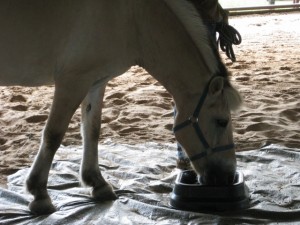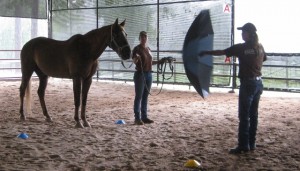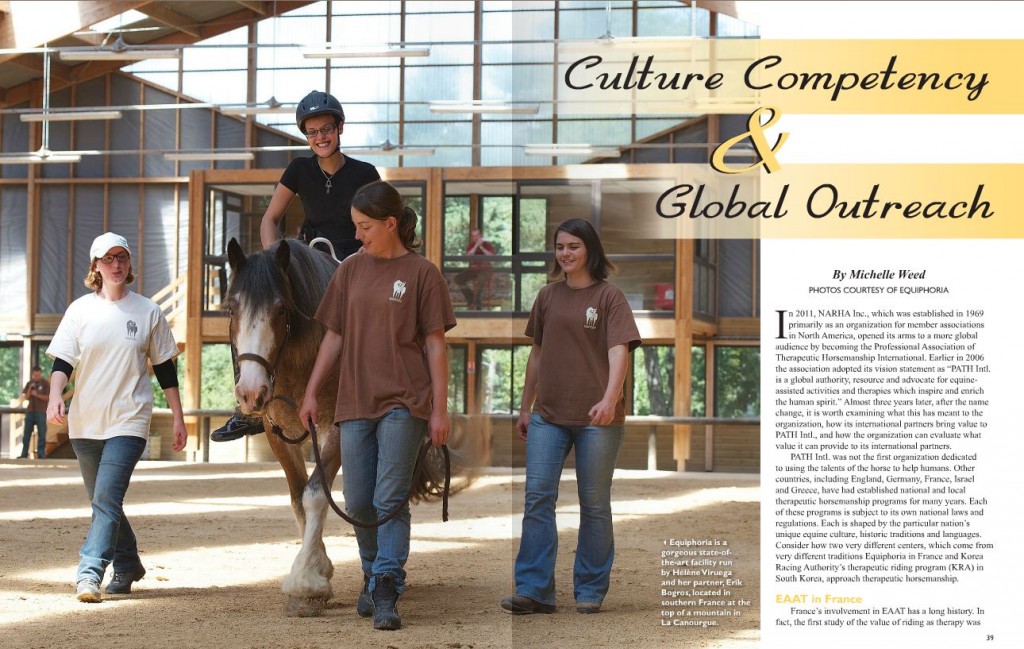Our therapists are our horses.
This summer Equest and SIRE were delighted to host Michelle Weed of the U.S. and from France, Hélène Viruega of Equiphoria and Marianne Vidament of the Institut Français du Cheval et de l’équitation.
[See below for information on the study of therapeutic riding and Multiple Sclerosis.]

Runa has no problem stepping on a tarp when food beckons.
Michelle – a PATH Intl Registered Instructor, Equine Specialist in Mental Health and Learning, Mentor, and Site Visitor – served as the liaison for our French visitors. Hélène Viruega recently built Equiphoria, a therapeutic riding center in a country well-known for horsemanship. But therapeutic riding and hippotherapy are not as well known. Hélène’s idea was to show through scientific research that therapy horses are qualitatively different from horses used in other activities.
So Marianne and Hélène were here to assess the temperament of horses used in therapeutic riding. Where better to find the best therapy horses than at SIRE and Equest, two of the world’s largest and most recognized therapeutic riding centers? Between the two, we could offer more than 50 test subjects.
Our horses all seemed to pass every test with ease. Marianne will be comparing the test results on the therapy horses with test results on young French show horses. We’ll be sure to pass on the results when published!

Hootie finds a suddenly-opened umbrella interesting but not worrying. (Note the markers on the ground so that all every horse is exposed from the same distance.)
Multiple Sclerosis Study
There are 77 different diagnoses among SIRE’s current riders. Attention deficit disorder, cerebral palsy, Down syndrome, people with these disabilities all benefit from riding at SIRE. For a study on multiple sclerosis by the University of Texas Medical Branch, SIRE currently is enrolling qualifying riders. (Contact Tara Patterson for study requirements.) In SIRE’s most recent effectiveness survey, 98% of the responding riders reported experiencing physical improvement and 100% reported emotional benefits from therapeutic horsemanship.
See more on the study’s sponsors here.



